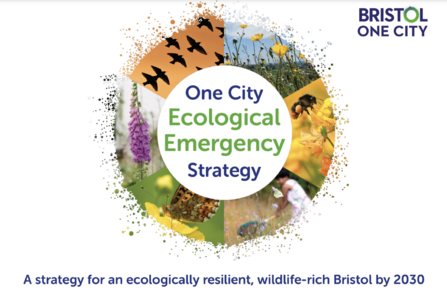The Strategy sets out the key actions needed to tackle the ecological emergency declared by the city in February, which has seen 68% of the world’s wild mammals, fish, birds, reptiles and amphibians worldwide lost since 1970, threatening the natural systems on which people and wildlife depend.
It puts forward solutions that match the urgency and scale of the ecological emergency, with four key goals for the next decade:
- Space for nature – at least 30% of land in Bristol managed for the benefit of wildlife by 2030. This means finding new spaces for nature to thrive throughout the city’s urban landscape.
- Pesticides – reduce the use of pesticides in Bristol by at least 50% by 2030. This means challenging their use at all levels and finding alternatives.
- Pollution – 100% of Bristol’s waterways to have water quality that supports healthy wildlife by 2030. This means reducing pollution contaminating water.
- Our wider footprint – people and businesses to reduce consumption of products that undermine the health of wildlife and ecosystems around the world. This means finding ways to help everyone better understand the impact of their actions.
The strategy has been developed through the One City Approach, which brings together public, private, voluntary and third sector partners within Bristol, together working to make Bristol a fair, healthy and sustainable city. It builds on successful work to protect nature, but aims to substantially increase the scale and speed of action.

